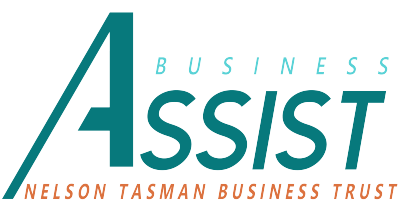Leading change for success in your business
- 15 March 2017
- Nelson Tasman Business Trust
Courtney Davis attended the BizNet meeting organised by NTBT, which featured the guest speaker Stephen Paul. Stephen is a Managing Partner at BNZ, and lives in Nelson.
There were approximately 30 people in attendance, some start up business owners, some aspiring business owners, and many with already established businesses. There was an array of companies, including an organic pet treat business, several health and wellness businesses, a business promoting Maori language in primary schools, and many more. This event was well received by all and everybody went away smiling.
Leading change for success in your business
Stephen begins the meeting by saying that no matter the size of the business, running it is hard work, and being courageous is essential. The good things we do for other business owners, like referrals and promotion, will help them immeasurably, he says.
Leading Change
Every year businesses are faced with challenge; that is the norm. What matters is that we know how to respond. As a business mentor, Steven is asked when the change is going to stop, but change is ongoing. Knowing what’s going on around you is critical to success.
Recalculating your business
Stephen speaks about owning and running two small businesses in Dunedin.
‘The best thing you can do to get ready for your future is to create it yourself.’ He says.
From 2001 to 2009, Stephen purchased an existing hairdressing business, and took the staff numbers from two to 13. He states that it was ‘better than we ever imagined’ and that customers got an experience that they paid for.
His other business was a retail high street store for homeware. He did lots of research on buying habits of customers and found that their major competition would be the homeware section of a local department store. However the service of this section of the store had become inconsistent, thus devaluing what this business stood for. Stephen was hopeful that his business would be a success, given that this was what it was up against. However, three months before the store was due to open, Stephen received a call. This conversation informed him that somebody else was opening a home ware store, also in Dunedin, which would be four times bigger than his business.
He’d invested a substantial amount of money from his personal savings into the business, and after the phone call he said that it felt like ‘money down the drain’.
When the business was up and running, Stephen was quick to have the ‘culture and what they stood for’ conversation. He was always looking for opportunities to be better and different.
He and his staff came together around a shared purpose: how will we connect our customers? Stephen states being quite granular about the ‘how to’ and ‘what needs to be changed?’. An example of something controversial he did was to take a choice of dinnerware home on appro. so that customers could see how it looked and felt in their home environment. He sys that nine times out of ten, the customers would come back and say ‘we’d like a 20 piece dinner set’.
The Paradox
How do you turn energy and passion into financial performance? ‘Get them to take a leap of faith,’ Stephen says.
‘When I walk into a business, I can feel the culture of the business, no matter the language’, he says. To illustrate this, Stephen gives an example of the staff at a large North Island company.
The staff were rude: they used obscenities and made crude remarks to the office girls.
When calling the CEO to tell him that their company no longer wished to be in business with them, the CEO assured them that the delivery would always be made on time, and that they were never at fault in this respect. However, service excellence is not just about timely delivery, Stephen says. The culture of this company was not one that their business wanted to associate with.
Good Conversation
How does one change or shift conversation?
Stephen relied on his staff to converse with the customers, in a friendly, encouraging fashion.
He explains how to have more effective conversations with customers and staff, and gave some good recommendations. He changed his approach from telling them, ‘I want you to’, to ‘what’s really important for you personally, and your family? How are we going to make that happen?’
He found that this shift in addressing them changed the way that they viewed the work, and the results improved greatly.
Stephen shares a barometer to help us develop good listening skills. He advises us to avoid pretense, which is ‘not paying attention when listening’, and sincerity, which is holding the belief that ‘I’m right no matter what you say’. Accuracy and authenticity however, are valuable traits and skills to have. Stephen’s business mentor advised him to gather information by asking lots of questions, with the view that ‘my opinion isn’t the most important’. Having and showing care for the people involved is also essential in good business conversation.
The question Stephen left the audience with was: ‘Would I work for me?’
Summary written by Courtney Davis.
